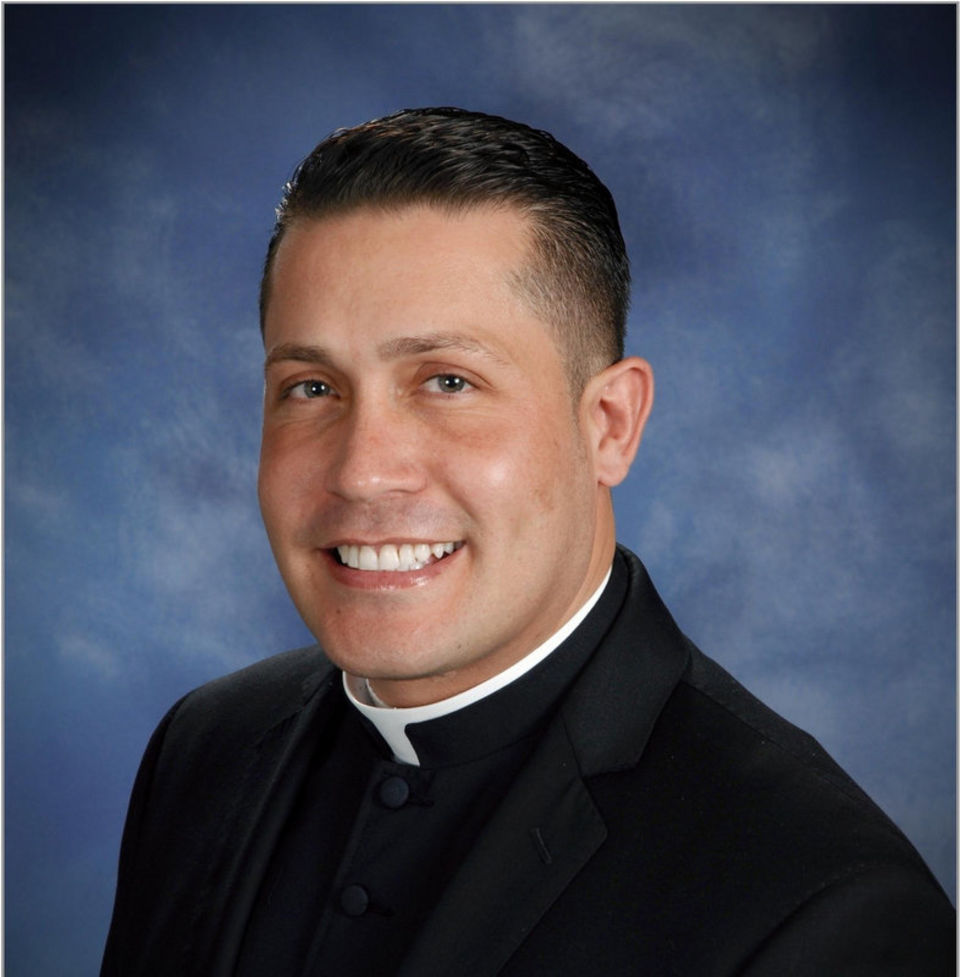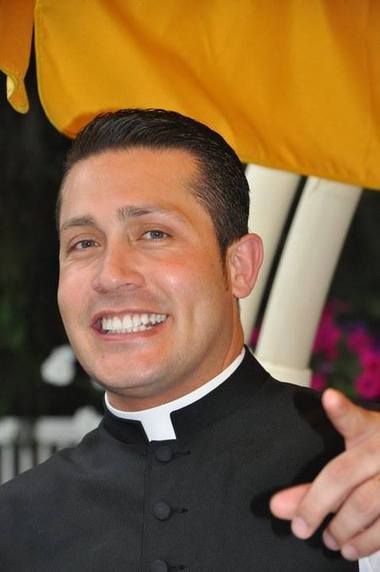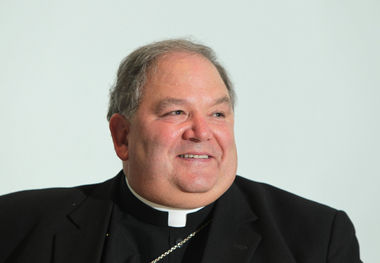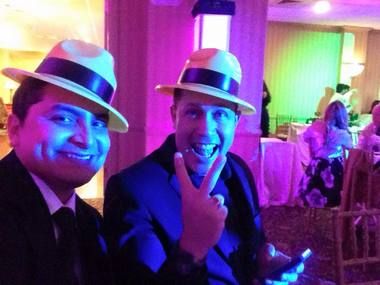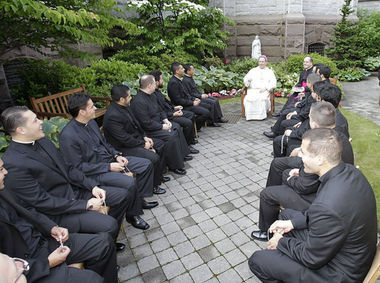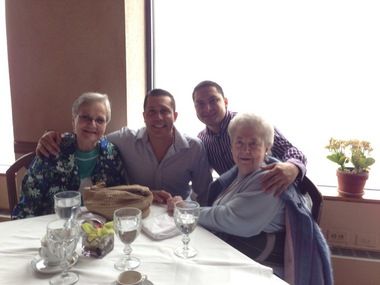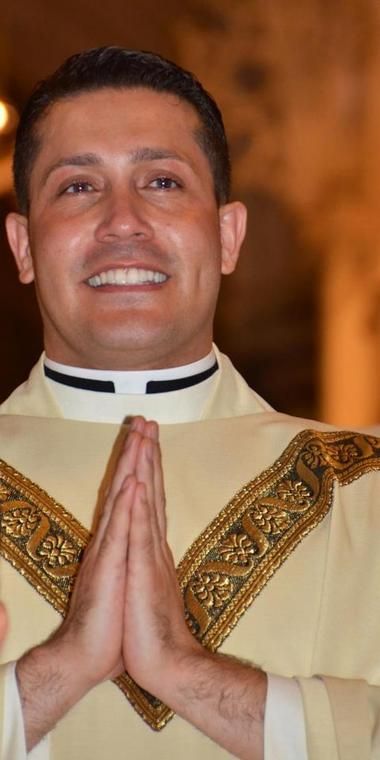Priest Took More Than $250k from "Grandmas" at Wealthy Church, Authorities Say
By Mark Mueller
He called them his grandmas. The Rev. Alex Orozco befriended the elderly women shortly after his assignment to St. Rose of Lima parish in Short Hills. Orozco was a new priest, charming and kind and afire with enthusiasm. And always, it seemed, willing to accept money, parishioners said. For a car. For a big-screen TV. For a house in the Poconos. For another house in his native Colombia. For credit card bills. For a second car. For plane tickets. For furniture. For dental work. From 2013 through the end of last year, Orozco allegedly took more than $250,000 in cash and goods from women in the wealthy parish after telling them hard-luck stories about the financial woes afflicting him, his family members and his friends.
The case has sparked a criminal investigation by the Essex County Prosecutor's Office and has raised broader questions about the limits on what clergymen should accept from generous parishioners and whether some of those transactions rise to the level of fraud or theft. A law enforcement official with knowledge of the investigation said detectives are trying to determine how many people Orozco solicited money and gifts from at St. Rose before his transfer last year to a different post at the Church of the Nativity in Midland Park, Bergen County. Both churches are in the Archdiocese of Newark, which has not informed either parish of the allegations, according to parishioners and the law enforcement official, who was not authorized to speak for attribution. The official called the investigation "open and active," saying Orozco sometimes collected multiple payments from different parishioners for the same expenses — car payments and insurance, for instance — even though both were covered by the archdiocese. 'They want to embrace me' In an interview with NJ Advance Media at the Midland Park rectory, Orozco, 37, acknowledged accepting large sums of money and other items, but he said that in most cases, he did not ask for them. "People came to me and said, 'Father, do you need something? Father, do you need anything?'" Orozco said. "Always, always always. ... I try to be very open to people. I try to be the best of myself. They want to embrace me, helping me." He said he did ask one parishioner, Patricia Brady, to help him buy a house in the Poconos so he could have a retreat away from the rectory. Brady, now deceased, gave him $25,000 — a sum NJ Advance Media confirmed with the executor of her estate — but Orozco never did buy the home. Asked what he did with the money, Orozco said: "I couldn't do it (buy the house), so what I did was try to help other people. So basically I gave it away to people. I did. I helped many people in Colombia. Unfortunately, that happened." MORE: Where's Father Manuel? Police hunting fugitive priest He also acknowledged asking another St. Rose parishioner to buy him a house in Bogota, Colombia, for his family after she offered her help. The woman, who was interviewed by detectives in December, told NJ Advance Media that while she freely gave the priest money and gifts on many occasions without solicitation, she did not offer to buy the $150,000 house and, in fact, began to grow suspicious of his motives. The woman spoke on the condition that she be identified only by her first name, Patty, because she is a wealthy widow who lives alone. Orozco said he alerted the archdiocese to the criminal investigation in January, after he was questioned by detectives, and that he spoke with Archbishop Bernard Hebda, a co-adjutor archbishop who is expected to replace Archbishop John J. Myers when he reaches retirement age next year.
"He said, 'Don't worry. We are going to help you with this,'" Orozco said. "That was it." Jim Goodness, a spokesman for the archdiocese, declined to comment on the investigation, calling it a personnel matter. He said the parishes have not been notified because Orozco maintains his innocence and has not been charged. "Would you want someone to be talking about you if you were being looked into for something and it turned out to be untrue?" Goodness asked. "You're looking at potential harm." Orozco's attorney, Edmund DeNoia, said the priest "unequivocally denies" he engaged in wrongdoing at St. Rose. "To the contrary, he is and has always been a hardworking, compassionate and dedicated priest," DeNoia said in an emailed statement. "There have been no criminal charges filed against Fr. Alex," DeNoia said, "and we firmly believe that any investigation into Fr. Alex's actions will result in his good name and reputation being cleared." DeNoia did not respond to a follow-up question about whether Orozco reported the money he accepted on his income tax returns. From actor to priest In a Youtube video recorded in 2012, shortly after his ordination in the Newark Archdiocese, Orozco recounts his path to the priesthood. He was a television actor, model and salsa dancer in Bogota, enjoying a measure of celebrity and the trappings that went with it, he told an audience of seminarians and young men considering religious life. "I remember when I was working in television, I was making a lot of money. A lot of money," Orozco said. "I had a very nice car. I had a lot of stuff. And I was happy. But when Mary and God called me to follow this life, the real joy is not coming from material things. ... The real joy is coming to be with God." Orozco, who repeated the story in his interview with NJ Advance Media, said he spent 10 years in a religious order in Colombia, taking vows of poverty, chastity and obedience. A former classmate who had become a priest in the Newark Archdiocese then contacted him with an offer to attend Immaculate Conception Seminary at Seton Hall University, he said. The archdiocese has among the highest rates of ordination in the country, in part because it aggressively recruits potential priests from Central and South America and from the Philippines, according to annual statistics compiled by the U.S. Conference of Catholic Bishops. Ordained May 26, 2012, Orozco was immediately assigned to St. Rose in Short Hills, one of the most affluent communities in New Jersey. A laundry list of needs Patty, the widowed parishioner, said she met the priest soon after. He quickly befriended her, visiting her home for meals and occasionally bringing her presents. Sometimes he was accompanied by Juancho Munoz Montoya, a Seton Hall seminarian whom parishioners described as Orozco's friend from Colombia. It wasn't an unusual arrangement. Patty, 82, said she is a woman of deep faith, appreciative of the work that priests do and the sacrifices they make. She said she has regularly helped people in need, giving away some of the fortune amassed by her late husband, an investment banker.
"I'm a very Holy Spirit kind of person. I truly believe that," she said. "He has had his hand on my shoulder my entire life, and I thought this was another manifestation." When Orozco told her of some of his financial difficulties, struggling to survive on his $1,200-per-month salary, she didn't hesitate to open her checkbook. The law enforcement official confirmed Patty's account of her spending, and Orozco, in the interview in Midland Park, acknowledged accepting most of the checks and items. Patty said she gave the priest $13,000 to pay off a sport utility vehicle and an additional $20,000 for another car when he traded in the first. Orozco, she said, never told her he received a vehicle allowance of about $500 a month. When he said he needed work on his teeth, Patty said, she wrote a check for $6,000. She bought plane tickets for Orozco and Montoya to travel home to Colombia and back to New Jersey. At one point, she said, the priest told her a large, specialized window at his mother's home in Colombia had been damaged in a storm. It would cost $5,000 to fix it, he said. She wrote a check. On another occasion, she said, Orozco told her Montoya's grandmother was at risk of losing her home in Bogota because she owed back taxes. "I said, 'Well, how much do you think that is?'" Patty said, adding that Orozco told her $6,500 would allow Montoya's grandmother to keep the house. She wrote another check made out to cash. "You have no idea what a charming fellow he is," Patty said. "He could sell you the Brooklyn Bridge." Orozco always appeared grateful, she said, but the stories of hardship kept coming. For nearly two years, she said, she paid his credit card bills in full, making the checks out to Bank of America. She repeatedly asked to see bills and receipts, she said, and he repeatedly came up with excuses, saying he paid online and couldn't find receipts for his purchases. "When we got to $75,000, I said, 'This is getting to be a lot, Alex,' and he totally ignored me," Patty said.
In the fall of 2014, Orozco transferred from St. Rose to the Bergen County church after the pastor there, the Rev. Peter Funesti, became gravely ill. But the move didn't halt Orozco's contact, and he soon complained about the lack of furniture in the rectory, Patty said. Some $8,400 later, she said, Orozco had a new bed, new blinds and new furniture. Separately, she said, she bought him a 55-inch television, which they picked out together at Best Buy. In total, she said, she spent more than $125,000 on the priest. "He kept telling me, 'Oh, grandma Patty, you're the only one who helps me. You're the only one. There's no other person,'" she said. It was a visit from an Essex County detective and an assistant prosecutor that confirmed Patty's growing suspicions about the man she had helped. Someone had tipped them off that Orozco was collecting money from multiple parishioners at St. Rose and had given Patty's name. "I told them what I had done for him and how he called me grandma Patty," she said. "And then one of them said, 'You're not the only grandma.'" She said she has since learned several other people in the St. Rose Community gave Orozco thousands of dollars for airfare and for what he described as attorneys' fees to settle an immigration issue. A Millburn restaurateur, Patty said, also told her he provided Orozco with a $10,000 loan, secured by the priest's Rolex watch, gold prayer beads and various rings. The loan, she said, was repaid. With all she has discovered, Patty said, she feels betrayed. "He did this under the guise of the Holy Spirit and God, and that really makes me angry, because you don't do that to God," she said. "He was there to serve God, and he lost sight of that." A house in the Poconos Carmela Brady knew her husband's cousin was close to a priest and a seminarian. Patricia Brady, who had never married and who lived alone in a Short Hills home she inherited from her parents, enjoyed the attention, Carmela Brady said. "They were taking care of her," said Carmela Brady, a Jackson resident and the executor of Patricia Brady's estate. "She was happy because they were doting on her, and she had never had that in her life. She also had a real devotion to the church and to priests." Patricia Brady, who was 84 when she died, had worked as a clerk at Millburn town hall, but she lived frugally and amassed sizable savings for retirement, Carmela Brady said.
Patricia Brady spoke fondly of Orozco and Montoya, both of whom called her grandma or Patsy, a nickname bestowed on her by a sister. When the two visited, she had Colombian recipes prepared for them by her caretaker, and at the suggestion of Orozco, she purchased a big-screen TV for her home, though she didn't watch much television, Carmela Brady said. As the relationship with Orozco and Montoya deepened, Carmela Brady said, Patricia Brady grew increasingly estranged from the rest of her family. She occasionally told relatives not to bother visiting, saying she was in good hands with Orozco and Montoya, the executor said. It wasn't until Patricia Brady's death in October 2014 that Carmela Brady and her husband, Thomas, learned about the money. The couple heard Orozco had asked Patricia Brady to help him buy a house in the Poconos. Carmela Brady said she discovered a closed bank account that once contained $40,000. Checks for $25,000 and $2,000 had been written to the priest, she said. An additional $4,000 went to taxes. Carmela Brady said she can't trace the rest. From other accounts, tens of thousands of dollars more had been given to another friend of Orozco, she said. She also learned Orozco and Montoya had been named in a second will, drawn up in the year before Patricia Brady's death. The elderly woman's attorney refused to allow her to sign it, saying she appeared to be confused, Carmela Brady said. "I can't say if undue pressure was placed on her, but it doesn't seem right," she said. "As a Catholic, it really upsets me, because now he is at a new church, and the archdiocese isn't doing anything about it." Orozco, in his interview with NJ Advance Media, said he was unaware Patricia Brady had named him in a second will until after her death, though he knew she was thinking of it. "She mentioned it to me many times, and I said, 'Please don't do that,'" he said. "Believe me, I would not have accepted. I promise that to God." The priest would say nothing about Montoya, who, after completing his seminary studies, was to be ordained in the Diocese of Trenton, according to parishioners at St. Rose. He has since transferred to a seminary affiliated with the Diocese of Fall River, Mass., headed by Bishop Edgar da Cunha, the former vicar general in the Archdiocese of Newark and a friend of Archbishop Myers. Montoya did not respond to messages requesting comment. 'This is very bad' The Rev. John J. Dietrich said he knows how fervently parishioners across America want to help priests. It's part of his job to ensure that young clergymen know the limits. Dietrich is director of spiritual formation at Mount Saint Mary's Seminary — the nation's second-largest seminary — in Emmitsburg, Md. He said he regularly tells the men under his tutelage to exercise prudence, avoid ostentation and gracefully decline gifts of significant value.
"People do want to give priests gifts, but they should be limited to things like scarves and gloves," Dietrich said. "I've told the men you don't want a truck backing up to the rectory with a big-screen TV. I try to stress the simplicity of life. That is a core aspect of a priest's training." Diocesan priests do not take vows of poverty. Even so, Dietrich said, it is critical for members of the clergy to guard against behavior that would damage their reputation or objective authority. Informed by a reporter of the allegations involving Orozco, Dietrich replied, "This is very bad." "What this touches upon is the sense of entitlement, and we condemn that in the seminary," he said. "It's the soul we're worrying about. If you lack the conviction of your words, you become a muddied instrument. It's the worldliness we're trying to prevent from infecting the priest's heart." Charles Zech, an expert on parish finances and director of the Center for Church Management at the Villanova School of Business, called any priest's acceptance of cash from a parishioner a "real red flag." "Priests don't have a lot of finer things, but any priest should draw the line when it comes to cash," Zech said. "That's where it crosses the line." Orozco said repeatedly during his interview with NJ Advance Media it was a mistake to accept money and other items, and he said he hoped his actions would not result in criminal charges or the end of his priesthood. "Unfortunately, I have to pay for that mistake, and if that's going to cost me my life in this country, I will give up this life," Orozco said. "I know this is going to be a big thing for the people, and I'm going to be so sad. I hope that this doesn't happen. I pray to God very much." He also said it was a mistake he would not repeat. "I will never in my life accept anything," he said. "Promise to God." Correction: A previous version of this story said Orozco's attorney, Edmund DeNoia, was hired by the Archdiocese of Newark. DeNoia represented Orozco pro bono, a spokesman for the archdiocese said.
|
.
Any original material on these pages is copyright © BishopAccountability.org 2004. Reproduce freely with attribution.
